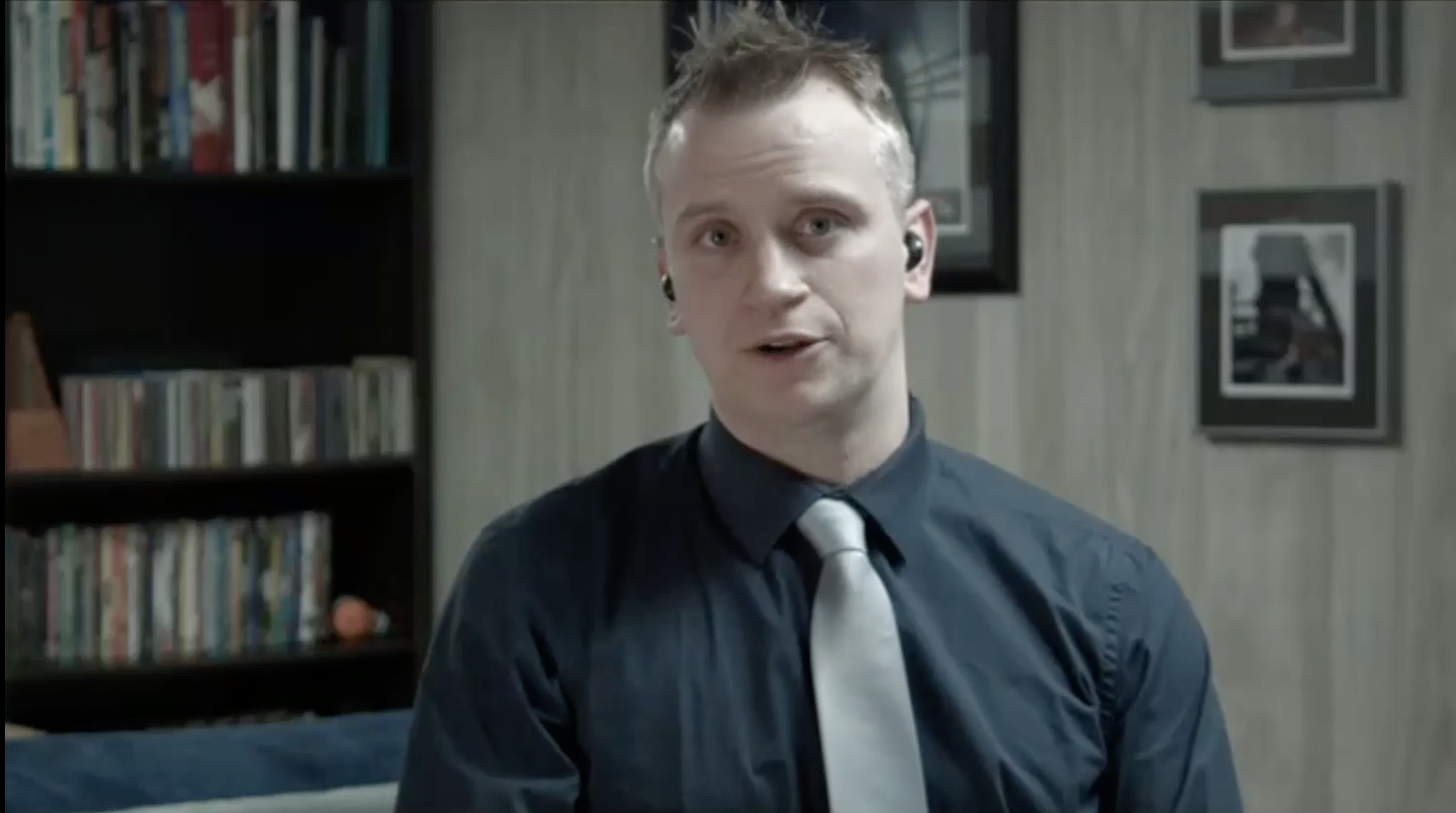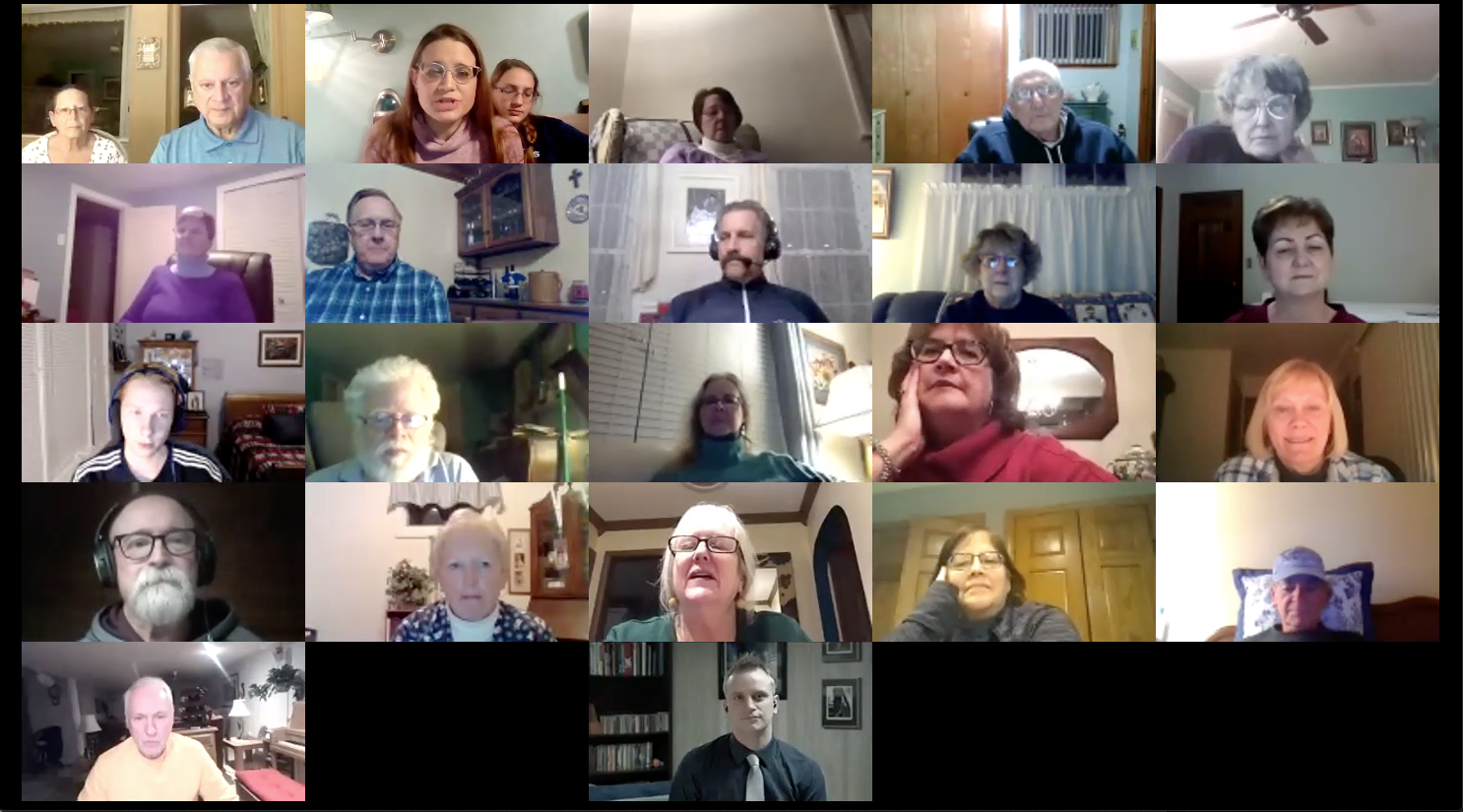
The title and theme of John’s presentation was “Music is a Story.” He walked the audience through his eclectic career path from student, to dueling pianist, to teacher, to schola singer, to music director, to screenwriter with a common thread: the desire to tell a meaningful story. He proposed that any artistic presentation, in any medium, carries with it an innate story and message. The job of the composer/author is to refine that message and present it as effectively as possible. The job of the performer is to faithfully interpret and render that message for society to consume. Whether the art is in narrative form, or simply an expression of emotion, this message is the very reason that artists do what they do.
More importantly, John highlighted the profound effect storytelling has had on civilization. Since the dawn of history, mankind has been creating stories about heroes, villains, gods, devils, humans, and monsters. These stories have always been a way to manifest emotion, or hope, social commentary, or moral philosophy. Appreciating the weight that stories carry is paramount for any artist, and demands real care from any aspiring performer.
Turning specifically to choral music with text, John explained his compositional method, which is organically rooted in the revelation of the theme – the moral question or emotional statement that catalyzes the entire presentation. Starting with the “skeleton,” he explained his process of identifying the “mile markers” in the text. These critical moments serve as the defining path through the rising action, up to the climax, back down to the denouement and conclusion. With that skeleton complete, John touched on a few compositional techniques of form, counterpoint, text painting, harmonic context, and melodic manipulation that serve as methods to explore musical themes and refine the substance of the piece.
John stressed the importance of collaboration with other artists – seeking feedback from performers and trusted colleagues that will share candid notes and suggestions to improve one’s work. In closing, he reiterated the great responsibility shared by all artists – to effectively tell stories and share emotions that engage the human condition. As they have for centuries, these stories will continue to affect the course of our society, for better or for worse.
John concluded by sharing a few samples of his own compositions and fielded several questions from the participants. Many thanks to Mrs. Sharon Burchill and the board of the Beaver Valley Choral Society for their generous invitation. The event was an inspiring and uplifting success!


Leave a Reply